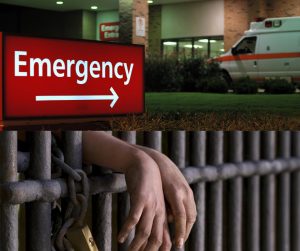“Trump is at risk of blowing it on opioids, a member of his own commission warns”
 This article was by Patrick Kennedy, a member of the President’s commission on opioid use. It reinforces the idea that there exists a consensus among expert advisors as to the next steps in dealing with the opioid epidemic. Yet something is stopping it from becoming policy. It may be a President who is getting conflicting advice from several sources.
This article was by Patrick Kennedy, a member of the President’s commission on opioid use. It reinforces the idea that there exists a consensus among expert advisors as to the next steps in dealing with the opioid epidemic. Yet something is stopping it from becoming policy. It may be a President who is getting conflicting advice from several sources.
Many Americans– perhaps even a majority of us — hold some pretty outlandish notions about addiction and recovery. They’re based not on research or even experience, but on strongly held attitudes and beliefs that in some respects are immune from evidence.
If we view drug addiction as a matter of an individual’s decision to break the law, it makes sense to turn to law enforcement and incarceration for answers. A user who’s in jail can’t use drugs, right? (well, they can, but it won’t be in public.) Problem solved, at least temporarily. Also, the example of the incarcerated drug offender can serve as a deterrent to others. It’s the proverbial two birds with one stone.
This is not so much a logical argument as it is an intuitive one, meaning “based on what one feels to be true even without conscious reasoning; instinctive.” We don’t need to reason our way to such conclusions. They feel like common sense.
Same for other familiar notions, such as: “the user makes the choice to use the drug, so whatever happens is their responsibility, not ours.” We’re as likely to hear that from the family doctor as from a lay person.
The idea of responding to addiction with treatment and prevention is, for many Americans, counter-intuitive. Meaning “contrary to intuition or common-sense expectation (but often nevertheless true).” The counter-intuitiveness of important ideas has been a problem in science forever– that’s why it took so long for people to accept that Earth was round, not flat. Some folks are still arguing about that one.
Right now, the prevailing evidence is strong: the opioid epidemic would respond to a more public health oriented strategy. But that’s still difficult for many people to swallow. So advocates have to work extra hard to educate the voters, while proponents of a more punitive approach simply point to some crime committed by some drug user and declare, “All I know is, if the SOB had been locked up, this never would have happened.”
I had a friend in law enforcement who was fond of quoting the old Baretta TV show. Remember? “If you can’t do the time, don’t do the crime.” I’d counter that the end result of such Draconian incarceration policies was jails and prisons crammed to the rafters with lesser offenders who eventually would have to be released again anyway — unchanged for the most part in terms of their drug use, or in many cases, in significantly worse shape than when they entered. They were using again in no time. Classic revolving door.
He didn’t even bother to argue. He’d just shake his head and repeat: “If you can’t do the time, don’t do the crime.”
If only the world was that simple. But the evidence is in: It isn’t.











